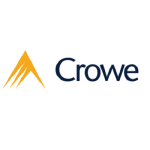In Asia, Singapore is often preferred by ultra-high net worth individuals and families as a jurisdiction to manage their wealth due its political stability, the presence of a large talent pool of competent finance professionals, high level of transparency and standards of governance, and a robust legal and judicial framework.
In addition, Singapore’s tax rates for corporations and individuals are competitive and its tax regime offers certain advantages such as tax incentives to exempt investment returns from tax for funds managed out of Singapore.
Based on the statistics available from the Monetary Authority of Singapore (MAS), the number of family offices being setup in Singapore has increased fivefold between 2017 and 2019. This trend is expected to continue as ultra-high net worth individuals and families are increasingly concerned about protecting their wealth amidst disruptions in the global economy, politics and tax systems.
This article explores the aspects of Singapore’s tax system that are favourable to ultra-high net worth individuals and families looking to establish a family office structure in the city-state.
Favourable aspects of Singapore’s tax system
Family assets and investments may traverse multiple countries. In determining a tax efficient jurisdiction to consolidate wealth through family office structures, considerations need to be given to the taxability of the income derived from holding, transferring or divesting investments and the repatriation of such income to the beneficial owners.
A common form of a family office structure will include one entity, usually a company, to hold the assets of the family and another to act as the manager of those assets. Certain features of Singapore’s tax regime make it a favourable jurisdiction to establish an asset holding company.
Singapore’s tax regime is quasi-territorial. This, from the perspective of an asset holding company, means that tax is imposed only on income that is accruing in or derived from Singapore, or received or deemed to have been received in Singapore from outside Singapore. Certain foreign sourced income, such as dividends, received by the asset holding company can be exempted from tax if certain conditions are met.
Gains from the disposal of assets will not be taxable if such gains are capital in nature. Conversely, such gains can be taxable if they are derived from a trade or business carried on in Singapore. Under Section 13Z of the Income Tax Act, any gains or profits derived by a company from the disposal of ordinary shares in another company between June 1 2012 to December 31 2027 are exempted from tax if certain conditions are met.
There is no dividend withholding tax in Singapore. If the asset holding company only derives income that are exempted from tax in Singapore, this means that the effective tax at the Singapore level on the profits derived by the family members by way of dividends will be the foreign tax paid at source, if any, on the profits out of which the dividend is paid out by the Singapore asset holding company.
In this regard, another key consideration is the tax treaties concluded by Singapore with about 90 jurisdictions. This can be useful for asset holding companies to reduce the tax at source on income such as dividends and interest received from those foreign jurisdictions.
Tax incentive regime
It should be noted that a family asset holding company, that is actively managed internally or by an external investment manager, will be subject to tax on divestment gains accruing in or derived from Singapore. This is because the tax exemption under Section 13Z is not applicable to all types of investments and, where it is applicable, it is unlikely that the conditions for exemption can always be met.
Hence, the tax burden to ultra-high net worth individuals from using a family office structure may be greater than if they were to invest directly in their name or through a managed account with a third party money manager. In such cases, tax incentives to exempt investment returns and gains should be considered.
As a leading fund management hub, Singapore offers two types of tax incentives to funds established in Singapore that are managed by Singapore-based fund management companies that hold the capital markets services licence under the Securities and Futures Act (SFA) for fund management or are exempted under SFA from holding such a licence. The variations in the tax incentives pertain to, amongst others, the level of funds under management and the type of investment vehicles used in the fund structure. These tax incentives also cover asset holding companies that are managed by family offices in Singapore.
The tax incentives provide for a tax exemption on specified income derived by fund vehicles from designated investments. The list of specified income and designated investments include, amongst others, most income from traditional investments such as equities, bonds and immovable properties situated outside Singapore.
Other benefits bundled with the tax incentives for funds include remission for goods and services tax (GST), where GST on local purchases in respect of investment activities could be recovered at a fixed prescribed rate.
To qualify for either one of the tax incentives, an application must be made to the MAS and approval is granted on a case-by-case basis taking into account the level of substantive activities carried out in Singapore, and the satisfaction of the conditions set for the particular incentive. The ongoing ability to meet the conditions to enjoy the tax incentives should be considered before making an application.
Conclusion
While tax is usually an important consideration, other factors such as legal and regulatory requirements pertaining to a family office structure should also be evaluated.
In setting up a family office, careful planning is required to minimise implementation costs such as transfer taxes or duties on consolidating assets into a single asset holding company. The structure should allow for effective family governance and smooth inter-generational transfers. Hence, a proper evaluation and implementation of the family office structure will ensure a safe and cost-effective wealth management.
Sivakumar Saravan
T: +65 6221 0338 Ext. 815
Liew Kin Meng
T: +65 6221 0338 Ext. 833













